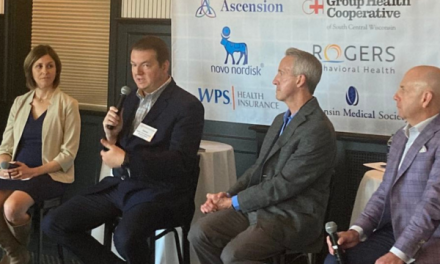
Community Care Celebrates National PACE Month
BROOKFIELD, Wis. (September 1, 2020) – Community Care, Inc. is celebrating National PACE Month in September. The National PACE Association (NPA) has designated September as National PACE Month as an opportunity to raise awareness and celebrate the difference PACE makes in the lives of seniors enrolled in PACE, their families and their communities. Across the nation, PACE organizations care for 95 percent of enrollees in the community rather than in a nursing home.
In order to enroll in PACE, a person must be age 55 or over, live in the service area, meet clinical eligibility requirements for nursing home placement, and be able to live safely in the community with the support of the PACE organization.
Around the country, PACE is a quickly growing care model that has been in operation for more than 30 years. A total of 134 organizations operate 264 PACE centers in 31 states. Currently, more than 51,000 individuals are enrolled in the program.
Community Care’s PACE program has been in operation for 30 years and currently serves more than 700 members in Milwaukee, Waukesha and Racine counties.
“Community Care is the exclusive provider of PACE services in the State of Wisconsin, allowing us to provide specialized care to those most vulnerable in the community,” said Kenneth Munson, chief executive officer of Community Care.
“Caring for older individuals with multiple health care needs has been particularly challenging during this pandemic,” said Shawn Bloom, NPA president and CEO. “To keep participants and staff as safe as possible, the PACE model of care has been adapted from bringing participants into a PACE center several times a week to providing services in the home. The resilience of the model in the face of this pandemic has been inspiring.”
The National PACE Association (NPA) works to advance the efforts of PACE programs, which coordinate and provide preventive, primary, acute and long-term care services so older individuals can continue living in the community. The PACE model of care is centered on the belief that it is better for the well-being of seniors with chronic care needs and their families to be served in the better for the well-being of seniors with chronic care needs and their families to be served in the community whenever possible. For more information, visit www.communitycareinc.org or www.NPAonline.org.





